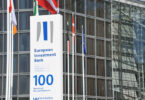Today South Korean telecoms firm KT Corp announced plans to launch Dongbaek Mall, an online mall designed to use Busan City’s blockchain-based local currency Dongbaekjeon, which launched in December last year.
As of August, 850,000 people had used the currency, with around 920 billion won ($831.4 million) worth of transactions. This and other local currencies are designed to encourage local consumption by offering cashback of 10% when using the currency for small transactions or 5% for larger transactions. It’s effectively a local subsidy.
The mall is now live and is in pilot mode until the 27th of November. Consumers access the online mall via the currency app.
Additionally, Busan City announced the coming launch of QR code mobile payments for the currency. To date, payments were made using a physical card, similar to a debit card.
The digital currency could be used in physical stores, but now it can be used online as well. However, due to recent legislation, from October onwards, it’s no longer possible to use Dongbaekjon or other local currencies unless stores register directly for the currency. Previously, if a store accepted card payments, it didn’t need a special registration.
The drive for registration is the result of certain retailers misbehaving. In some cases, they request additional payment or offer illegal currency exchange. If you think about one won of local currency is worth more than one won, because of the cashback. Hence some people might prefer to sell the currency rather than spend it.
That’s illegal because the whole purpose of the currency is to encourage consumption and increase sales for SMEs. It also aims to remove barriers for the small business owners, such as merchant transaction fees.
“We are also planning additional services that utilize the capabilities of the KT group to activate the Dongbaekjeon service and support small business owners,” said Kim Jong-cheol, head of the KT Blockchain Biz Center, according to Yonhap News.
Notably, the currency cannot be used in some industries like hypermarkets, which are essentially a combination of supermarkets and department stores. That’s in part because it’s expressly designed to support SMEs.
Busan City has long been active in blockchain-related services, establishing itself as a regulation blockchain zone in 2019. In June 2020, the city launched a decentralized identity verification service to provide access to public services through the Busan Blockchain ID app, developed by blockchain firm Coinplug. In August, Busan City and the Busan Institute of Industrial Science and Innovation announced they completed planning for an unmanned, blockchain-based smart logistics system. The system is to be used in Busan’s Port, the fifth busiest port in the world.






